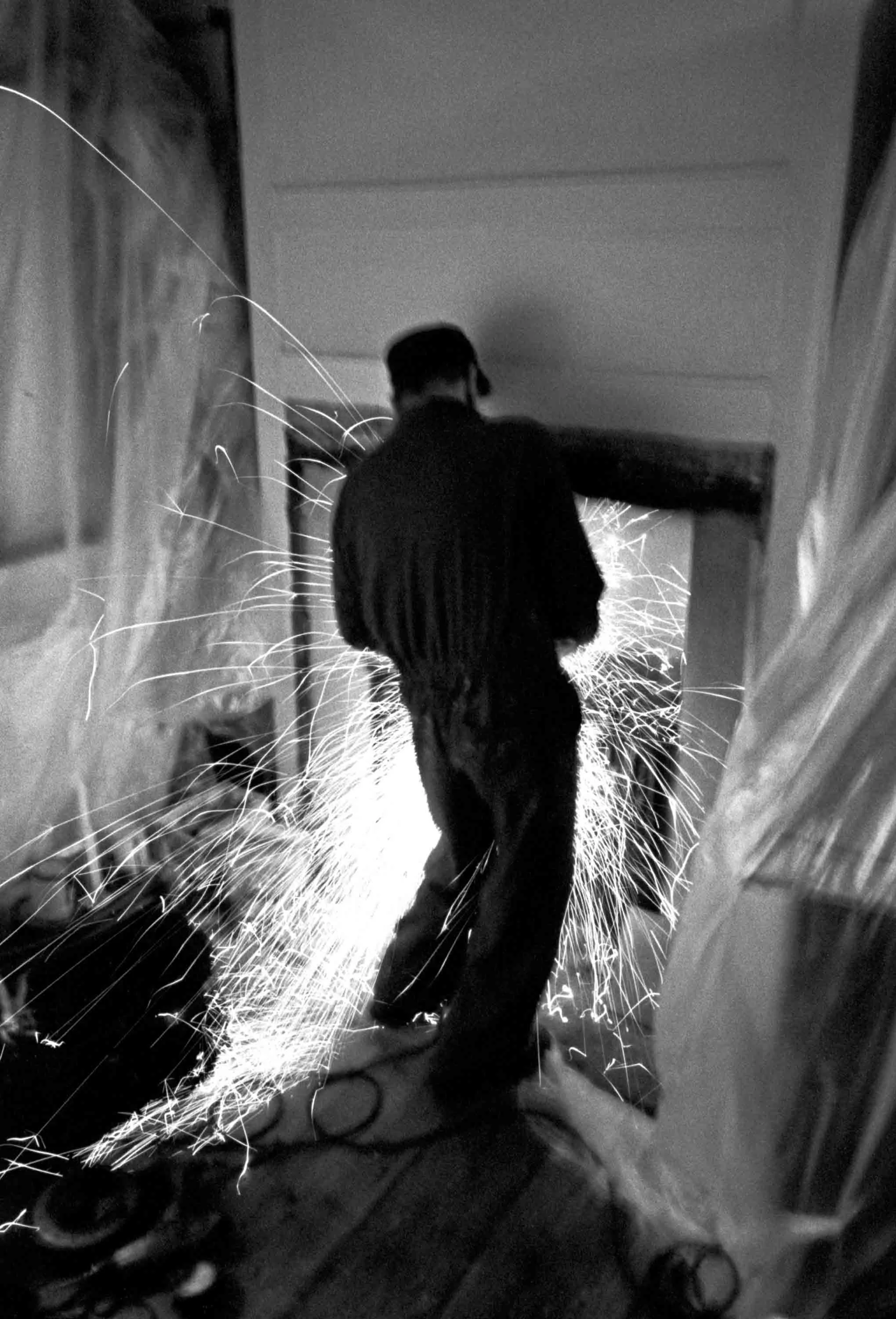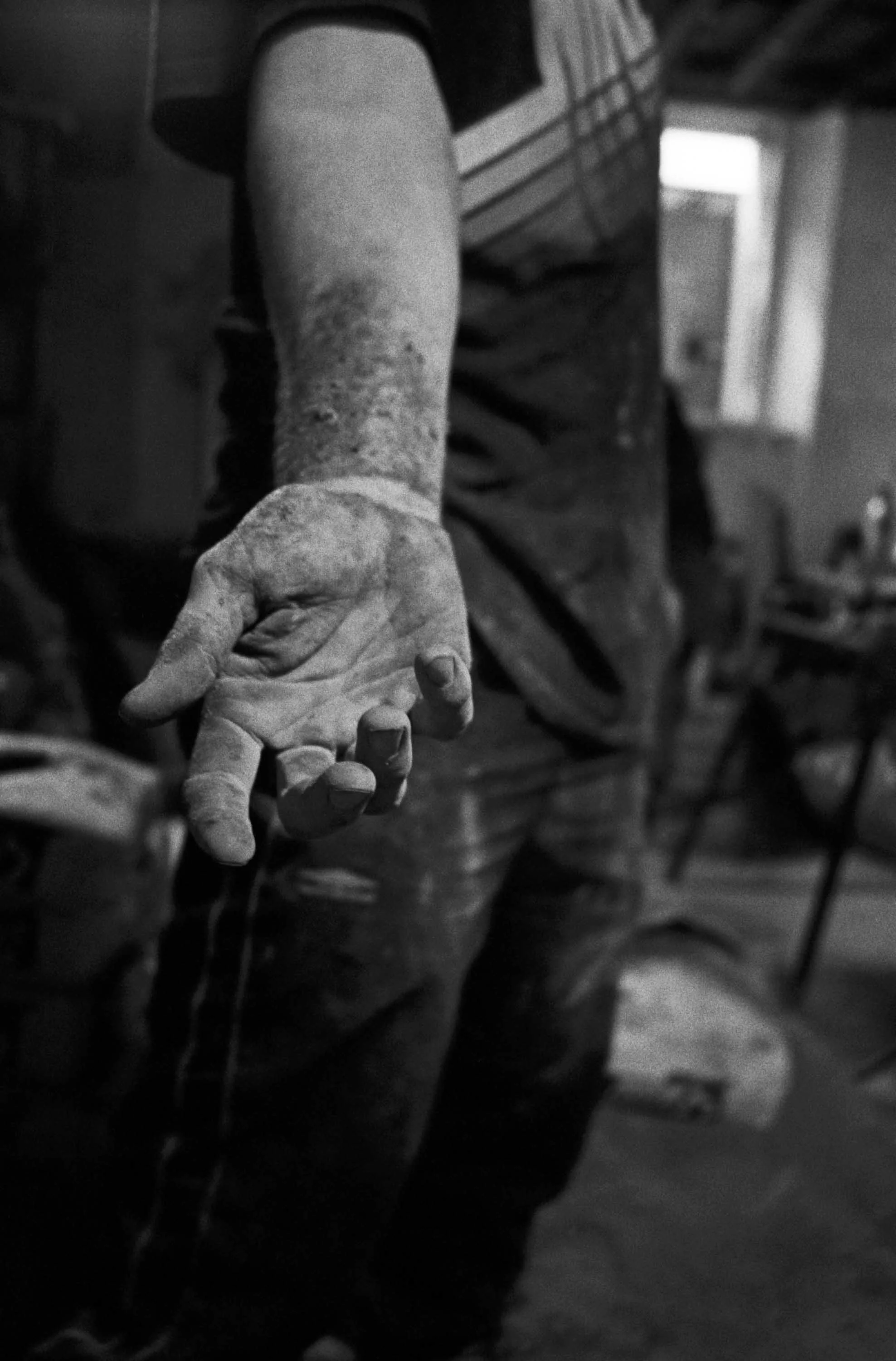David O’Mara
David O’Mara (1973) is an Irish artist currently working and living in the UK. David grew up in Co. Waterford and studied art at the Waterford Institute of Technology, and later a joint degree in Art History and Sculpture at NCAD. His artistic practice has involved documenting his daily life as a painter and decorator on building sites in London. It is a job he initially undertook to facilitate his wider practice dealing with found imagery. From 2012 he self-published a series of zines entitled Detritus. In recent years David has concentrated on making handmade books and publishing his work. In many of his project he utilises unconventional materials to make one-off and small edition artist’s books. His first publication, If you can piss…, was published in 2019 by Januzzi Smith Editions. His latest, In Situ, made in collaboration with Salt n Pepper press will be launched at the BOP 22 Photobook Festival in Bristol. David has exhibited widely and his work has featured in many publications over the years.
Project Title: If You Can Piss
Since 2001 David worked as a painter and decorator in London, whilst maintaining his own artistic practice. What was meant as a stop gap whilst realising his artistic ambitions turned into a twenty-year career on the building sites of London and further afield.
Frustrated by the time constraints of working full time in such a physically demanding industry, and a lack of progress in his artistic career, he also realised an opportunity to document an often overlooked working environment.
As a means of relieving his frustrations, he started to use a pocket 35mm camera on site, capturing episodes that are easily forgotten when the job is completed and the tradesmen have left. Working on small-scale domestic sites also allowed a high level of autonomy and personal time management. The project was borne out of a desire to relieve what can be often repetitive and boring work as well as to reassert his own identity as an artist.
The resulting images reflect his experience of working on many sites throughout the city; the physical labour, friendships, stresses and moments of levity. Significantly, the images are produced from a position of mutual trust and understanding, rather than one of dispassionate observer. Together, they document an often overlooked (and misrepresented) arena of working class culture within contemporary society. This body of work also intersects with wider issues such as the shifting nature of identity, economic migration and the increasing hostility of the city’s living costs to the working class whose labour is essential to its operation.
‘If you can piss [you can paint]’, the title of this book, is a gentle derision common to building sites to belittle the painting trade, and typifies the microcosmic hierarchies found on site, as well as its universal camaraderie.
Mark and Grant digging a basement
Harry’s new iPhone
Geez’s work t-shirt
Geez and Julian looking out a window
Labourer breaking concrete
Self portrait
Labourer’s boots
Labourer digging a hole
Workman grinding metal for fireplace
Labourers taking a break
Geez and Harry relaxing
Mark cutting York stone slabs
Exhausted labourer
Workman in a fireplace
Labourer during a concrete pour
Client’s upended sofa
Workman installing loft insulation
Makeshift tea room
Scraper left on side table
Tea and cigarette break





















